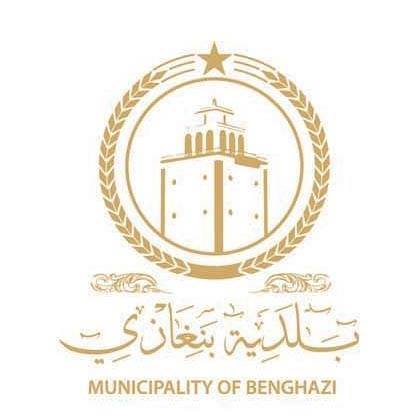By Sami Zaptia.

London, 17 August 2020:
Speaking on Libyan TV on Sunday, the Tripoli based Libyan Finance and Acting Economy Minister, Faraj Bumtari, said the Tripoli Central Bank of Libya was using monetary policy instruments incorrectly through poorly managed documentary credits. This, he added, has contributed to major traders acquiring foreign currency and selling it on the black-market. This will affect the country’s economy (negatively) in the long run.
The Minister was commenting on the fact that Libya’s Customs Authority were prohibiting goods entering Libya that were not paid for through official Letters of Credit. This, the Minister said, was a legal move in accordance with existing law – insisted on by the Tripoli Central Bank of Libya (CBL). The Tripoli CBL.
He added that his internationally recognized government, led by Faiez Serraj and based in Tripoli, had on more than one occasion decreed to allow goods to enter the country in violation of this, despite the refusal of the CBL to acquiesce to this and allow direct transfers.
The Minister pointed out that the topic He said this showed the existence of a problem caused by the CBL by refusing to open LC’s to all traders of all sizes and through all commercial banks and official channels.
The Minister was referring to the accusation that the Tripoli CBL was biased towards big business and a select group of Libyan companies.
Bumtari said his government attempted to resolve the issue through Libya’s (split) legislature bodies in the state to intervene and find a solution to the issue, but that the legislature had reached a deadlock with the CBL, which refused to amend its policy.
He said his government will continue to work to find the necessary solutions and that it would not stand against the interests of business or harm the private sector or the national economy. He said all businesses were calling on the CBL to make the import of goods less rigid.
Analysis
Goods stranded in ports going to waste
It will be recalled that there have been complaints by businesses that millions worth of goods have been stranded at ports for months because they were not paid for through official LCs. The CBL has been trying to force importers to be part of the formal economy by registering on its database and putting their company papers in order – before it would open LCs for them.
Most traders work in the informal economy
Unfortunately, many, if not most Libyan small and medium traders work informally and within the informal sector. Their company’s documentation is incomplete, partly due to the burdensome Libyan bureaucracy, and partly that the current economic climate does not pay or encourage formality. The risk of trading in the Libyan economy is very high, with all the risk stacked against the private sector – and especially the small and medium sized companies.
Reducing black-market foreign currency demand
Most of these traders buy their currency on the black-market. Tripoli CBL wants to keep the black-market foreign exchange rate down so that the price of goods stay down, and citizen’s purchasing power remains reasonable. By refusing to allow goods in at ports that were not paid for through official LCs, Tripoli CBL hopes to reduce demand for black-market foreign currency.
Solving the banking cash crisis – sucking in hoarded cash
Another reason the Tripoli CBL insists on forcing importers to pay for their imports through the opening of LCs at local banks is to force them to deposit their cash, currently hoarded at home, into their bank accounts to pay for their LCs. This, it hopes, will help resolve the country’s bank liquidity crisis.
However, as alluded to earlier, the Libyan public and business leaders have lost and have no confidence in the country’s banking system. They understand that Libya’s economy relies on oil exports for most of its revenues to drive it – exports that have been blockaded since January this year. They, therefore, suspect that any huge amounts of cash they deposit into their accounts – they will not be able to withdraw. This fact is a huge disincentive for business to import through LCs even if they are opened at the hugely preferential exchange rate of LD 1.4 per dollar as opposed to around the black-market rate of LD 6.5 per dollar. Importers would rather charge more, cause high prices / inflation – but have access to their cash in the informal economy.
CBL policy too rigid
However, the Tripoli CBL’s policy is not working. It has a rigid list of goods for which it will open LCs. Its too planned and too rigid and is inflexible. It does not respond quickly to market demand. It has caused shortages and presumes ‘‘Big Brother’’, the Tripoli CBL, knows best. It presumes it knows what the economy needs and what consumers need. It is an inadvertent return to the Qaddafi-era planned economy – an economy that failed miserably
Tug-of-war between CBL and the government: Who decides economic policy?
The attack by the Tripoli Finance and Acting Economy Minister continues a trend of squabbling between the Tripoli-based Libyan executive, the internationally recognized Libyan government led by Faiez Serraj, and the unaccountable and un-transparent Tripoli CBL. It is a battle for who ultimately decides (western) Libya’s economic policy, the government, or the bank technocrat?
Remember, El-Kaber is not even accountable to the CBL’s Board of Governors. It is split on west-east lines, with the eastern members in the majority. It has not met for years. So El-Kaber, supported by the international community it must be added – has ruled unilaterally.
The Tripoli CBL has been taking advantage of Libya’s political split and resultant vacuum. Its Governor, Saddek El-Kaber, has been sacked twice and a successor has been appointed by the internationally recognized Libyan parliament based in Tobruk, the House of Representatives (HoR). But he has refused to leave his post.
The CBL comes under the authority of parliament and not the government. Faiez Serraj cannot remove him, and while Libya is politically split – as it has been since 2014 – El-Kaber is a one-man monetary policy dictator.
When El-Kaber is pushed, he takes cover under the fig leaf of being just a monetary technocrat. He sees himself as the self-appointed custodian of Libya’s billions of hard currency reserves – ironically accumulated during the Qaddafi era.
He likes to take the big monetary decisions – but will not carry the political responsibility for his decisions when they fail. He considers all the Libyan governments since the 2011 February revolution as lacking in legitimacy and accountability, not experienced enough and not to be trusted with the country’s decades-old accumulated reserves.
He consequently blames all of Libya’s economic failure on its politicians and their failure to unify. Yet, in the meanwhile, he does not recognize the need for realist policies until, or if, Libya comes out of its political crisis.
It will also be recalled that this is not the first time that Minister Bumtari has attacked the Tripoli CBL.
In April this year he accused it of opposing reform, not controlling foreign currency flow and called for the reorganization of its board. Serraj had launched an even more vicious attack on the CBL in April too.
https://www.libyaherald.com/2020/04/09/serraj-speech-to-the-nation-attacks-cbl-and-treasonous-media-says-international-community-concerned-purely-with-self-interest/
https://www.libyaherald.com/2020/04/22/minister-of-finance-acusses-cbl-of-opposing-reform-policies-and-not-controlling-foreign-currency-flow-calls-for-reorganization-of-cbl-board/
https://www.libyaherald.com/2020/07/23/after-holding-meeting-to-listen-to-independent-critics-cbl-tripoli-is-criticised-for-failed-policies-and-urged-to-find-quick-solutions-to-critical-problems/







